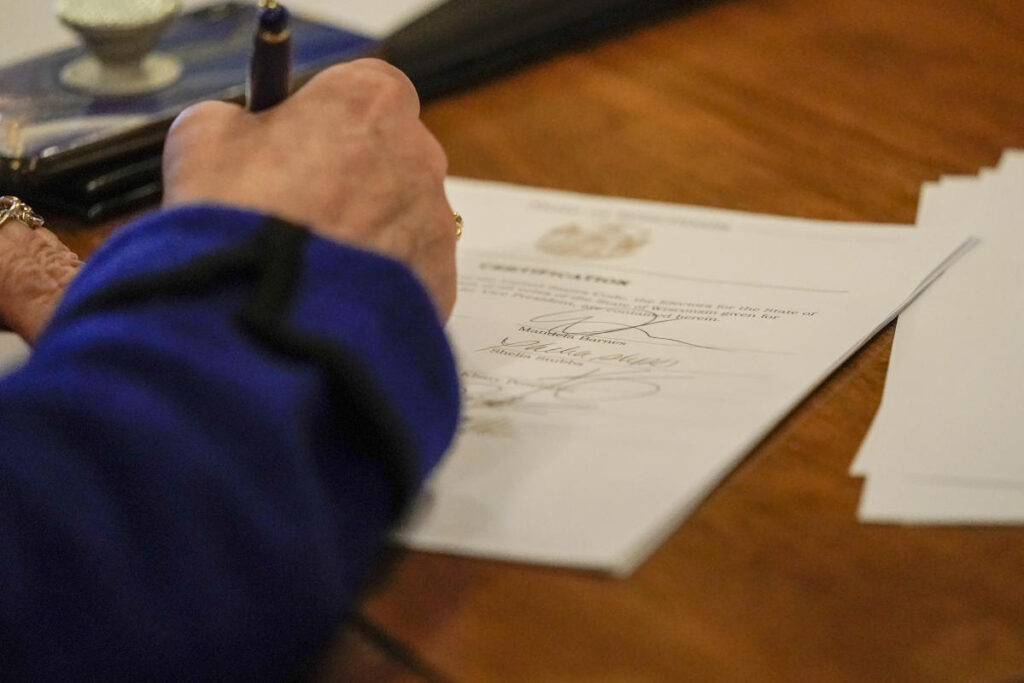On a significant day in Wisconsin politics, the state’s Republican Party is set to convene on Tuesday to cast the Electoral College votes for President-elect Donald Trump, adhering to federal law rather than state law, which stipulates a different date for such proceedings. This decision follows a lawsuit filed by the Wisconsin Republican Party, which sought judicial clarification on the appropriate date for the Electoral College vote. After discussions among elections officials and the Wisconsin Department of Justice, a consensus emerged that federal mandates take precedence, leading to a resolution. Consequently, U.S. District Judge James Pederson ruled to dismiss the lawsuit, given the unanimous agreement on the federal timeline.
The discrepancy between state and federal law arises from the specific dates outlined for electors to meet for formal voting. According to state law, electors are instructed to gather on the first Monday after the second Wednesday of December. However, federal law prescribes that this gathering should occur on the first Tuesday following the second Wednesday in December, prompting confusion. Acknowledging the existing conflict, the Republican-controlled Wisconsin Legislature attempted to rectify the situation by drafting legislation to align state law with federal requirements, yet the proposal was stalled in the Assembly despite passing the Senate with overwhelming support.
The issue underscores the complexities that can arise when state laws do not align with federal statutes, particularly in the context of electoral processes. States must navigate these legal intricacies as they execute their electoral responsibilities, which are integral to the democratic framework of the United States. The prompt action taken by elections officials to abide by federal law demonstrates the importance placed on conducting elections and related activities within the established guidelines to ensure their legitimacy and integrity.
This episode reflects broader themes within the national conversation about electoral legislation and the challenges faced by states in adhering to a patchwork of laws. Political actors often find themselves in contentious disputes over procedural details, especially during pivotal election cycles. The push from the Wisconsin Republican Party to clarify voting dates illustrates the heightened sensitivity surrounding electoral processes in a politically charged environment, marking the importance of compliance at both federal and state levels.
Moreover, the ruling and subsequent actions taken by Wisconsin officials present a case study of how judicial intervention can be influenced by consensus among stakeholders, which in this instance benefited the resolution of the issue without further legal entanglement. The fact that the lawsuit was deemed moot due to mutual agreement signifies a rare moment of collaboration amidst political divides, highlighting the need for pragmatism when it comes to electoral matters.
In conclusion, the upcoming gathering of Wisconsin electors exemplifies the navigation of legal frameworks governing elections and the willingness of state actors to align with federal standards. As the nation observes the proceedings, it also serves as a reminder of the ongoing challenges and debates surrounding electoral integrity and the need for cohesive legislation that mirrors the evolving political landscape. This scenario may prompt further discussions on how states can improve their electoral processes and ensure clarity in the intersection of state and federal laws during future elections.

